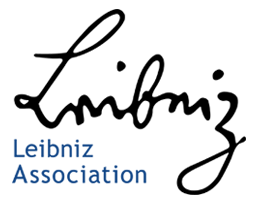Privacy policy
Privacy policy for our website
We are pleased that you are visiting our website and would like to inform you as comprehensively as possible about the associated processing of your data.
When you visit our website, personal data is collected from you. This is data that is required so that you can use our website or that enables us to take your preferences into account. In addition, it may be information that you yourself provide to us via the contact options offered on these pages.
We use this data to ensure the proper operation and all functionalities of our website and to answer your enquiries.
In the following, we inform you about which data is collected on our website and for which purposes it is processed. In addition, you will receive information about your rights and contact details for us and our data protection officer.
1. Contact and data protection officer
This data protection declaration applies to the internet presence of
Leibniz Institute for Plasma Science and Technology e.V.
Felix-Hausdorff-Straße 2, 17489 Greifswald
eMail: welcomeinp-greifswaldde
Tel.: 0049 3834 554 300
Fax: 0049 3834 554 301
www: www.leibniz-inp.de
You can reach our data protection officer as follows:
Nadja Dahlhaus
eMail: dahlhausinp-greifswaldde
You have the right to contact our data protection officer at any time, free of charge and confidentially if you wish, to assist you in enforcing your data protection rights.
2. Purposes and legal bases of data processing, processors, transfer to third parties in third countries
We will only use the personal information you provide to us for the purposes for which it is intended.
The legal basis for the processing of your data may be in particular
- Your consent pursuant to Art. 6 para. 1 lit. a DSGVO, for example by agreeing to the use of cookies or web analysis,
- the initiation and execution of the contract pursuant to Art. 6 (1) lit. b DSGVO, for example, if you contact us via the form,
- be our legitimate interest pursuant to Art. 6 para. 1 lit. f DSGVO, for example in the context of public relations, securing the necessary functionalities of the website, IT and internet security, quality assurance, fraud prevention and prosecution of criminal offences.
If you have given us consent for a specific purpose, you can revoke this consent informally at any time with effect for the future. The revocation of consent does not affect the lawfulness of the processing carried out on the basis of the consent until the revocation.
Personal data will only be transferred to state institutions and authorities on the basis of mandatory national legal provisions.
The persons entrusted by us with the processing of the data are obliged to maintain confidentiality and to process the data lawfully. In the event of further processing of your personal data for a purpose other than the original purpose, we will notify you accordingly.
We use the support of external service providers (processors) for certain technical processes regarding data analysis, processing and / or storage. Both we and the processor are obliged to comply with the technical-organisational measures in accordance with Art. 32 DSGVO and the external service provider is also obliged to maintain confidentiality. Processing is carried out exclusively on our behalf and on our instructions. Processing of your personal data that goes beyond this commissioned data processing only takes place with your explicit consent or in the cases ordered by law and by official or judicial authorities.
Data is only transferred to third countries (countries outside the European Economic Area - EEA) if this is necessary for the fulfilment of the contract, is required by law, you have given your consent to the data processing or is necessary to ensure various functionalities on the website. We will inform you separately about details, if required by law.
3. Duration of data storage
In connection with the purely informational use of our homepage, we store the data that your browser transmits to our server for the period of time necessary to rectify faults or error messages. Deletion usually takes place within 7 days after the end of the internet connection.
Further deletion periods result depending on your use of the website.
If you contact us with a request using our contact options, we store your personal data collected from the time of collection. We store the data collected in this way for the duration of our business relationship, which also includes the initiation and execution of a contract. In addition, we are subject to various storage and documentation obligations, which result, among other things, from the German Commercial Code (HGB), the German Fiscal Code (AO) or other tax law. The retention periods prescribed there are up to ten years after the end of the year in which the contractual relationship was terminated. Finally, the storage period with regard to the possibility of defence against legal claims and proof of fulfilment of obligations under data protection law is also assessed according to the statutory limitation periods, which according to §§ 195 ff. of the German Civil Code (BGB) are generally 3 years from the end of the year in which they arose.
In the event of further deletion periods, you will be informed in the further course of the data protection declaration.
4. Further data protection information
Please also note our special data protection information for applicants, suppliers and business partners at www.inp-greifswald.de/de/privacy-policy/.
5. Data subject rights (information for data subjects under Chapter 3 of the GDPR)
You have the following data subject rights:
- the right to information according to Art. 15 DSGVO,
- the right to rectification in accordance with Art. 16 DSGVO,
- the right to erasure in accordance with Art. 17 DSGVO,
- the right to restrict the processing of personal data pursuant to Art. 18 GDPR,
- the right to data portability according to Art. 20 DSGVO and
- the right to object to the processing of personal data pursuant to Art. 21 DSGVO.
In addition, there is a right of appeal to a data protection authority in accordance with Article 77 of the GDPR. The complaint can be lodged with the data protection authority of the country in which you reside or work or in which the alleged infringement occurred. If the data protection authority of another member state is competent for the body you are complaining about, the national data protection authority will coordinate with the other data protection authority. You can find an overview here:
www.bfdi.bund.de/DE/Infothek/Anschriften_Links/anschriften_links-node.html
The supervisory authority responsible for us is
The State Commissioner for Data Protection and Freedom of Information of Mecklenburg-Western Pomerania
Schloss Schwerin, Lennéstraße 1,
19053 Schwerin
Phone: +49 385 59494 0
Fax: +49 385 59494 58
6. Functionality and presentation of the website
6.1 Cookies
We use cookies. Cookies are text files that are placed and stored on a computer system via an internet browser.
Cookies contain a so-called cookie ID. A cookie ID is a unique identifier of the cookie. It consists of a string of characters by which Internet pages and servers can be assigned to the specific Internet browser in which the cookie was stored. This enables the visited Internet pages and servers to distinguish your individual browser from other Internet browsers that contain other cookies. A specific internet browser can be recognised and identified via the unique cookie ID.
The use of cookies enables us to provide more user-friendly services to the users of this website. Information and offers on our website can be optimised in the interests of the user, for example by recognising the user of the website. This means that access data does not have to be re-entered each time the website is visited, as this is done by the website and the cookie stored on the user's computer system.
However, a distinction must be made in the use of cookies with regard to different purposes. If these small files are absolutely necessary in order to display the website properly, they are not used voluntarily. The legal basis for the integration of cookies in this case is Art. 6 (1) lit.f DSGVO.
In the following, we have compiled links where you can find detailed information on how to deactivate cookies in common browsers:
- Mozilla Firefox: support.mozilla.org/de/kb/drittanbieter-cookies-schutz-aktivitatenverfolgung
- Microsoft Edge: support.microsoft.com/de-de/microsoft-edge/cookies-in-microsoft-edge-l%C3%B6schen-63947406-40ac-c3b8-57b9-2a946a29ae09
- Google Chrome: support.google.com/chrome/answer/95647
- Safari: support.apple.com/de-de/guide/safari/ibrw850f6c51/mac
6.2 Server log files
The provider of our website automatically collects and stores information in so-called server log files, which are automatically transmitted to us by your browser. The following can be collected
- browser types and versions used,
- the operating system used by the accessing system,
- the website from which an accessing system arrives at our website (so-called referrer),
- the date and time of access to the website,
- an internet protocol (IP) address,
We do not draw any conclusions about you when using this general data and information. Rather, this information is required in order to
- to deliver the contents of our website correctly,
- to ensure the permanent functionality of our information technology systems and the technology of our website, and
- to provide law enforcement authorities with the information necessary for prosecution in the event of a cyber attack.
This data and information is therefore evaluated by us on the one hand statistically and on the other hand with the aim of increasing data protection and data security in our company, in order to ultimately ensure an optimal level of protection for the personal data we process. The processing is carried out within the scope of our legitimate interest pursuant to Art. 6 (1) f DSGVO. The anonymous data of the server log files are stored separately from all your specified personal data. This data is not merged with other data sources. However, if there are indications of illegal use of our website, it is possible for us to check this data retrospectively.




































